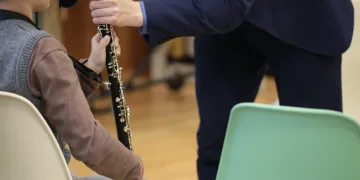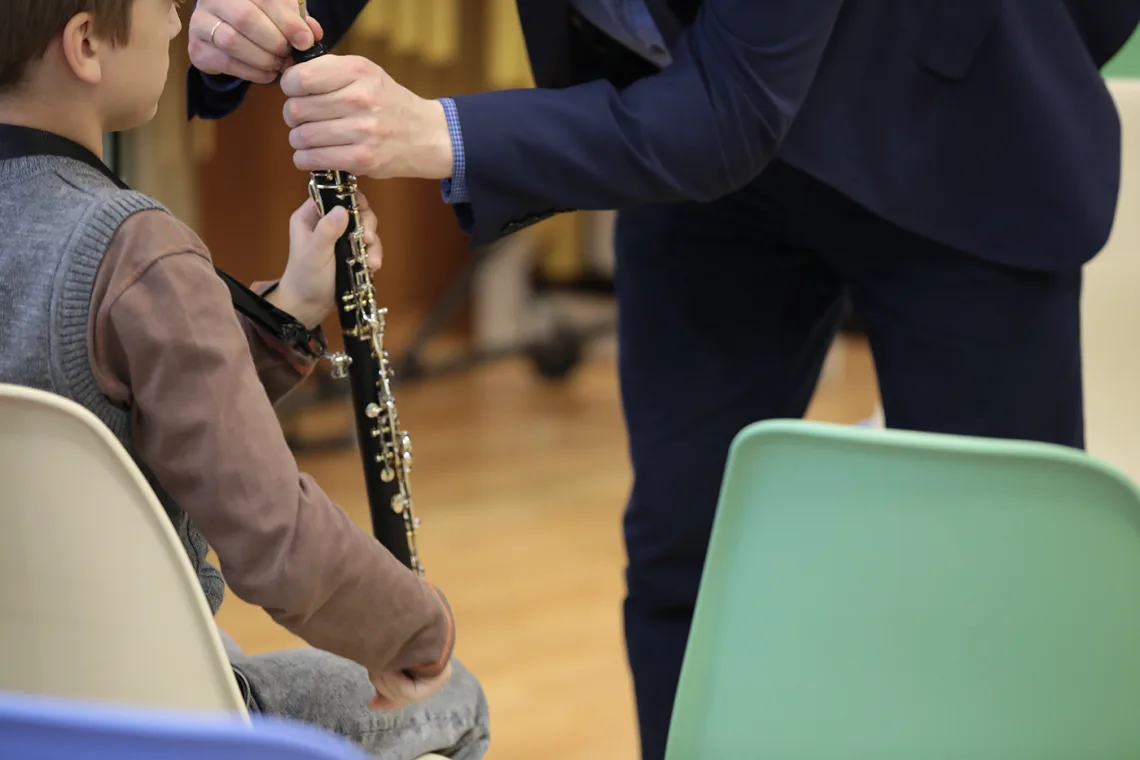Pull Quote: It’s alarming to recognize that during the formative teenage years, many wind players decide whether they will pursue music as a lifelong passion or abandon it entirely.
The school service sector within the music industry is at a pivotal moment. With an alarming rise in store closures and a wave of retirements among repair technicians, and a total void of knowledgeable sales staff in many music stores, the sustainability of this sector is facing dire challenges. As we navigate this landscape, it’s imperative to address a significant gap that exists: the division between educators who excel in teaching musical development and those who could leverage this into possessing extensive product knowledge and repair skills. This chasm inhibits our collective ability to cultivate sustained interest in playing wind instruments, particularly among students.
Many music educators hire private lesson teachers or rely on limited expertise when making crucial decisions about student equipment. These decisions significantly impact student success, yet many directors lack the technical insight required to truly understand how different instruments can facilitate or hinder a student’s musical journey. It’s alarming to recognize that during the formative teenage years, many wind players decide whether they will pursue music as a lifelong passion or abandon it entirely. After 45 years in this industry, I am sure we both recognize how true this statement is.
To reverse this trend, we must change our behavior and encourage educators with specialized professional skillsets to expand their skills beyond pedagogy to include repair expertise and product knowledge. By doing so, we can create an environment where students are not only engaged but are provided with the right tools to thrive musically.
The Overlooked Connection
The relationship between product sales, repair services, and music education often goes unnoticed at a time when the sustainability and viability of the school music service sector are critically under threat. As educators, we must recognize that effective teaching is not limited to mere instruction; it also extends to understanding the equipment that enhances learning. Smart pedagogy is vital for developing musicians; however, creating intelligent pedagogical connections to product knowledge and repair services is equally crucial to meet students’ diverse needs.
A Shift Toward Pedagogical Selling
What, then, is the solution? Enter pedagogical selling, a concept that merges teaching moments into the sales process. This innovative approach is one we have employed for decades with great success and we are hoping to help it gain traction for the betterment of our sector as a means to redefine student engagement and foster a deeper understanding of one’s abilities as a musician. In light of recent shifts in the market and evolving consumer behavior, there has never been a more essential time to adopt effective equipment upgrade strategies that prioritize education.
At Lisa’s Clarinet Shop, we have placed significant emphasis on this concept, focusing on elevating the quality of products we offer rather than merely increasing quantity. By promoting premium instruments that cater to a wide range of student needs, we aim to provide a solution that incorporates an understanding of pedagogy within our sales framework. Likewise, our repair training programs at The Wind Repair Training Academy are designed to ensure educators and technicians are equipped with the skills necessary to maintain and improve instruments, enhancing the overall learning experience for students.
Educators as Product Experts
Incorporating education into the understanding of products and repairs has become a focal point of our work. Educators, by developing product knowledge and technical expertise, can empower themselves to make informed choices that positively affect student outcomes. When music directors possess both teaching skill and product understanding, they are better equipped to create an enriching educational environment that fosters passion and longevity among students. This works especially well for fractional educators that may be in your school district serving in private lesson or supporting roles.
For instance, a well-informed educator can guide students toward the right instrument based on their unique requirements, skill level, and aspirations assuring they have access to tools that enhance their musical journey. This means everything for a student on the fence about how interested they are in continuing to participate. This informed decision-making absolutely can significantly reduce the dropout rate among students, particularly when they reach those critical teenage years when many musicians decide to either commit or disengage from music.
Conclusion: A Call to Action
It’s time to recognize the urgent need for a paradigm shift within the music education sector. By empowering educators to become product specialists and repair technicians, we can begin to narrow the gap that exists between education and practical application and increase motivation to participate for the long-term.
The future of our industry relies on creating intelligent connections between teaching, product knowledge, and repair services. By investing in ourselves and our institutions, we can redefine what it means to educate in the music sector and ultimately foster a generation of passionate, lifelong musicians. Let’s work together to create an educational environment that not only inspires success but sustains it for years to come.
























